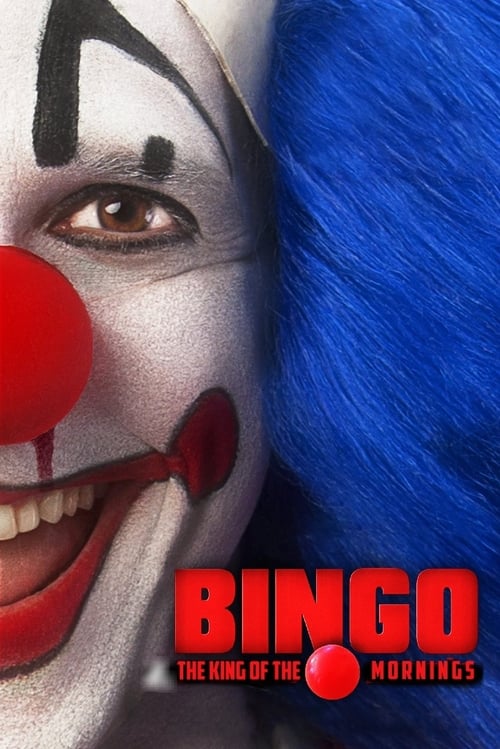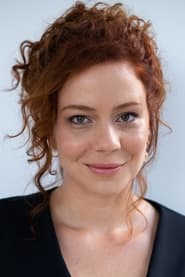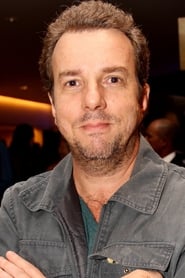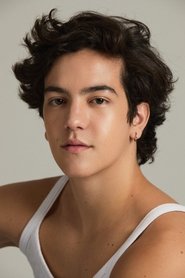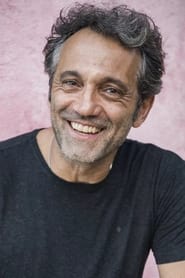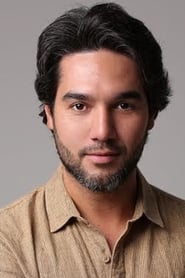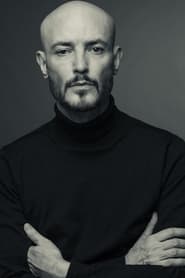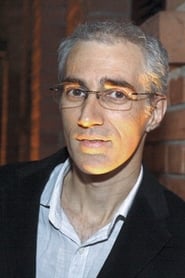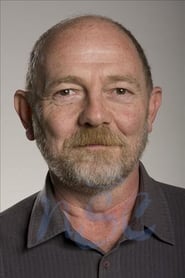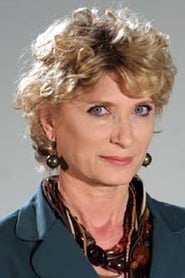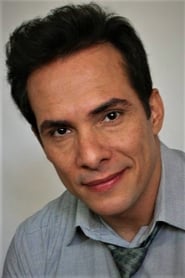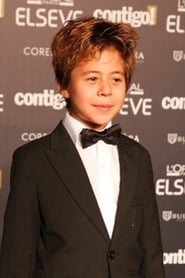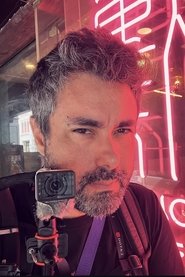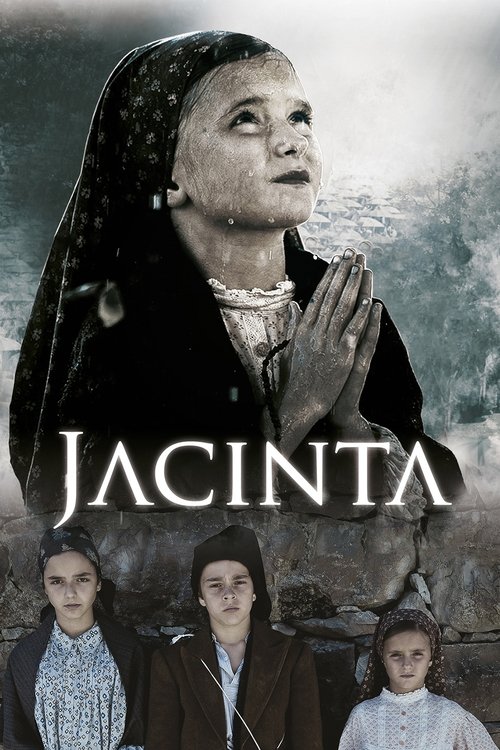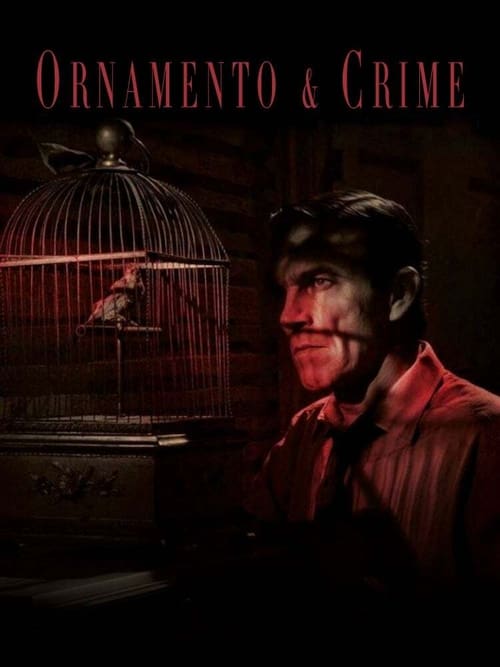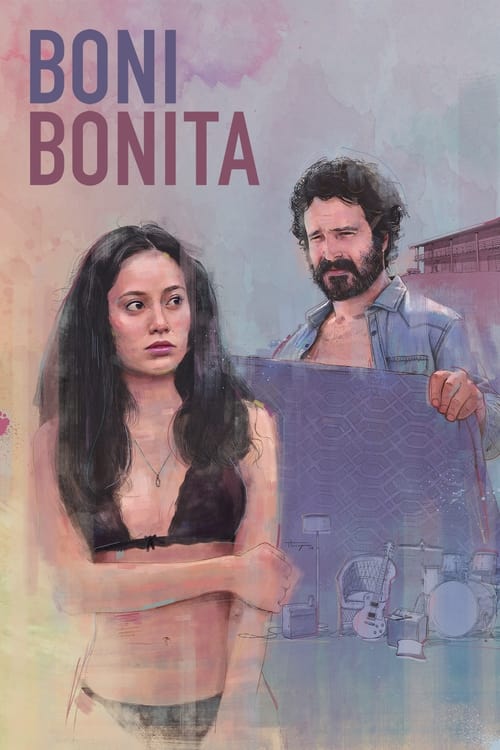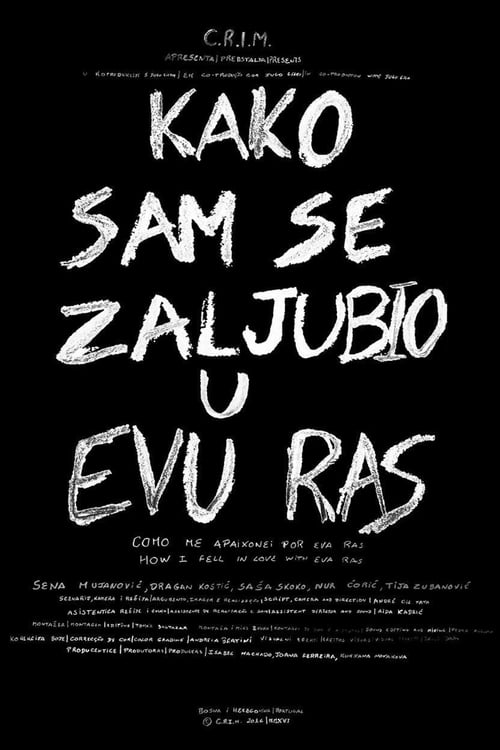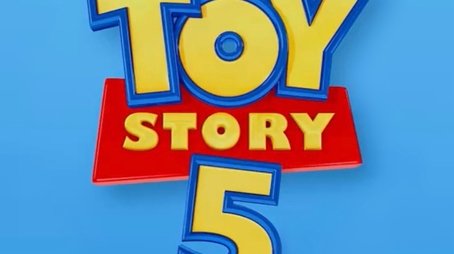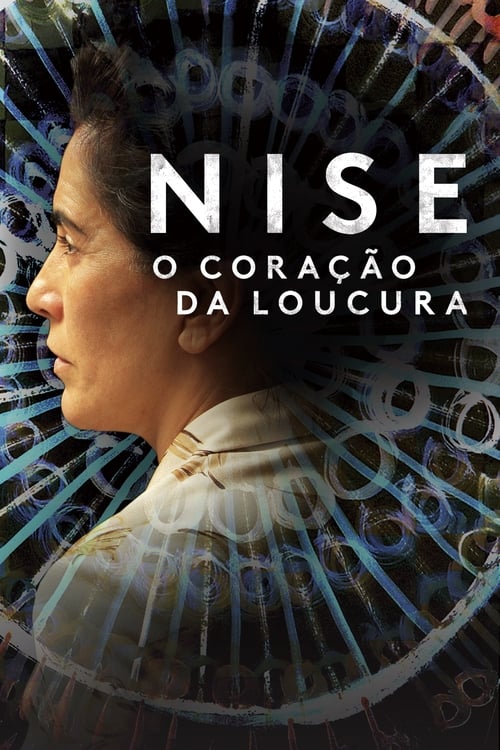
Ask Your Own Question
What is the plot?
The sun rises over Rio de Janeiro in the early 1980s, casting a golden glow on the city's vibrant streets. The air hums with the promise of a new era--colorful television is exploding, and the auditorium programs are louder, wilder, and less politically correct than ever before. In a small, dimly lit audition room, Augusto Mendes, a young actor with a sharp wit and an even sharper ambition, sits nervously. He's just come from a failed soap opera tryout, dismissed once again by directors who see only arrogance in his eyes. Augusto is used to rejection, but he's also used to talking himself up, to believing, with unwavering self-confidence, that he's destined for something greater. He's charming in a way that's hard to dislike, the kind of man who can talk about himself all evening and somehow make you want to listen.
He's just left the world of softcore pornography, tired of being typecast as the man with his butt on screen, and now he's chasing a different kind of fame. As he wanders through the corridors of the TV studio, he stumbles upon a line of clowns in red and blue costumes, waiting to audition for a new children's show called Bingo. The American producer, Peter Olsen, stands at the front, clipboard in hand, his eyes scanning the hopefuls. Olsen doesn't speak Portuguese, but he's here to find the perfect Bingo, the face of a show that's already a decade-long success in the USA. The script for the show is dull, the jokes flat, and the atmosphere sterile. When it's Augusto's turn, he steps forward, not as a clown, but as himself--mocking the producer in Portuguese, making jokes that Olsen can't understand. The crew bursts into laughter, and Olsen, mistaking Augusto's irreverence for genius, hires him on the spot. "You're hired," Olsen says, smiling, unaware that he's just given the role to a man who will change the face of Brazilian television.
Back at home, Augusto tells his partner, Marta, about his new job. She looks at him, wary. "No more butt on screen?" she asks, half-joking, half-concerned. Augusto grins, and she hugs him, relieved that he's finally found something respectable. But Augusto's mind is already racing ahead. He's not just a clown; he's a performer, a man who craves the spotlight. He's ready to become Bingo, the king of the mornings.
The TV studio for the Bingo show is a small, family-owned channel, the kind of place where the broadcasts can stretch for hours, sometimes up to ten, with no unions to worry about. The studio is a chaotic mix of bright colors, flashing lights, and the constant hum of cameras. Augusto arrives for his first day, donning the full clown's makeup--the red nose, the rice powder, the exaggerated smile. The costume is heavy, the makeup suffocating, but it's also liberating. Behind the mask, he's not Augusto Mendes, the struggling actor; he's Bingo, the beloved clown, the face of a show that's about to take Brazil by storm.
The first few shows are a disaster. The script is rigid, the jokes predictable, and the audience is bored. Augusto chafes at the restrictions, his improvisational spirit stifled by the dull lines. But he's not one to hold back. During a live broadcast, he decides to go off-script, mocking young bullies, telling risqué jokes, and even taking phone calls from children. The audience erupts in laughter, the ratings soar, and Bingo becomes an overnight sensation. The show is suddenly the talk of the town, beating all rival programs, and Augusto is at the center of it all. He's brilliant at improvisation, his sharp wit energizing the entire production. The studio is alive with energy, the cameras rolling for hours, the children screaming with delight.
But behind the mask, Augusto is struggling. His contract insists that his identity remain secret, that no one knows who Bingo really is. He's an anonymous celebrity, adored by millions but unknown to his own family. Marta is supportive, but she can't help but feel the strain. "You're not just Bingo," she says one night, her voice tinged with frustration. "You're Augusto. You're my partner. You're Gabriel's father." Gabriel, their young son, looks up at his father with wide eyes, confused by the man in the clown makeup who comes home late, exhausted, and distant.
Augusto's mother, a famous TV diva from the 1950s, is his anchor to reality. She was once a star, but now she's forgotten, a fact that pains Augusto deeply. He idolizes her, sees her as the only person who truly understands him. He visits her often, seeking her approval, her guidance. But as his fame as Bingo grows, so does the distance between them. He's too busy, too consumed by the demands of the show, to spend as much time with her as he'd like.
One morning, the news comes like a thunderclap. Augusto's mother has died. The studio is in chaos, the show must go on, but Augusto is shattered. He stands in the dressing room, staring at his reflection in the mirror, the red nose and rice powder mocking him. "She was my anchor," he whispers, his voice breaking. "She was my crutch." The loss is devastating, a pivotal moment that marks the beginning of his downfall. Without her, he feels lost, adrift in a sea of fame and anonymity.
The show continues, but Augusto is no longer the same. His improvisations become darker, more erratic. He mocks the audience, tells jokes that border on offensive, and the children, once so eager to call in, start to shy away. The ratings begin to slip, and the producers grow concerned. "You're losing your touch," one of them says, his voice stern. "You need to get back to what made Bingo great." But Augusto can't go back. He's too consumed by grief, by the weight of his own identity.
Marta tries to reach him, to pull him back from the edge. "You're not just Bingo," she says again, her voice pleading. "You're Augusto. You're Gabriel's father. You're my partner. You can't let this mask consume you." But Augusto is too far gone. He's trapped in the persona he's created, unable to reconcile his public and private selves.
The climax comes during a live broadcast. Augusto, in full clown makeup, stands on the stage, the cameras rolling, the audience watching. He's supposed to tell a joke, to make the children laugh, but instead, he breaks down. "I'm not just Bingo," he says, his voice trembling. "I'm Augusto Mendes. I'm a man, a father, a partner. I'm not just a clown." The audience is silent, stunned. The producers rush to the stage, trying to calm him, but Augusto is beyond their reach. He removes his mask, revealing his face to the world for the first time. "This is me," he says, tears streaming down his cheeks. "This is who I am."
The show is canceled, the studio in chaos. Augusto is fired, his contract voided. He returns home, the weight of his actions heavy on his shoulders. Marta is waiting for him, her eyes filled with a mixture of relief and sorrow. "You did the right thing," she says, hugging him. "You showed them who you really are." Gabriel looks up at his father, a small smile on his face. "Dad," he says, "you're not just Bingo. You're my dad."
The film ends on a bittersweet note. Augusto sits in his living room, the TV off, the silence deafening. He's no longer the king of the mornings, no longer the face of a beloved show. But he's free, free from the mask, free from the anonymity. He's Augusto Mendes, a man who sought fame and fortune, who found success but lost himself in the process. The cost of fame, the loneliness behind the clown's mask, is laid bare. The closing credits roll, noting that the film is inspired by the life of Arlindo Barreto, the real-life inspiration for Bingo, acknowledging the fictionalization but underscoring the emotional truth of the story.
Augusto's journey is one of triumph and tragedy, of fame and anonymity, of love and loss. He's a man who wanted to be seen, who wanted to be loved, but who found that the price of fame was his own identity. In the end, he's not just Bingo, the king of the mornings. He's Augusto Mendes, a man who learned, too late, that the mask he wore was not just a costume, but a prison.
What is the ending?
In the ending of "Bingo: The King of the Mornings," the main character, Augusto Mendes, faces the consequences of his choices as he grapples with the impact of his alter ego, Bingo. The film concludes with Augusto realizing the importance of authenticity and the sacrifices he has made for fame. Ultimately, he finds a sense of closure and acceptance regarding his past.
As the final act unfolds, we see Augusto Mendes, portrayed by Vladimir Brichta, in a moment of reflection. He stands in front of a mirror, contemplating the duality of his life as both a beloved children's television host and a man struggling with personal demons. The vibrant colors of the set contrast sharply with the somber mood that envelops him. The laughter and joy that once filled his life now feel distant, overshadowed by the weight of his decisions.
In a pivotal scene, Augusto attends a reunion with his former colleagues, where nostalgia and regret intertwine. The atmosphere is thick with unspoken words as he reconnects with those who once shared his dreams. The camera captures the bittersweet expressions on their faces, highlighting the passage of time and the changes that have occurred. Augusto's internal conflict is palpable; he longs for the camaraderie of his past but is acutely aware of the sacrifices he made for his career.
As the reunion progresses, Augusto's alter ego, Bingo, is brought up in conversation. The laughter that once accompanied the character now feels like a haunting reminder of what he has lost. The audience witnesses Augusto's struggle to reconcile his public persona with his private self. He feels the weight of expectations pressing down on him, and the joy he once derived from entertaining children is now tinged with sadness.
In a climactic moment, Augusto confronts the reality of his choices. He realizes that the fame he sought has come at a great cost, affecting his relationships and his sense of self. The emotional turmoil is evident as he grapples with feelings of isolation and regret. The vibrant set of Bingo, once a symbol of joy, now serves as a backdrop for his introspection.
The film culminates in a poignant scene where Augusto decides to step away from the spotlight. He acknowledges that he must prioritize his own happiness and authenticity over the demands of fame. The decision is not made lightly; it is a culmination of his journey throughout the film. The audience witnesses a transformation as he embraces vulnerability, shedding the layers of his alter ego.
In the final moments, Augusto walks away from the set, leaving behind the character of Bingo. The camera lingers on his face, capturing a mixture of relief and uncertainty. He steps into the unknown, symbolizing a new beginning. The film closes with a sense of hope, suggesting that while the path ahead may be challenging, it is one that he is ready to face on his own terms.
As for the fate of the main characters, Augusto Mendes finds a sense of closure and acceptance, choosing authenticity over fame. His former colleagues, who have also experienced the passage of time and change, are left to reflect on their own journeys. The film leaves the audience with a lingering sense of the complexities of identity, the sacrifices made for success, and the importance of staying true to oneself.
Is there a post-credit scene?
"Bingo: The King of the Mornings" does not feature a post-credit scene. The film concludes its narrative without any additional scenes after the credits roll. The story wraps up the journey of the main character, the television clown Bingo, and his struggles in the entertainment industry, focusing on his personal and professional challenges. The ending emphasizes the themes of fame, identity, and the impact of television on personal relationships, leaving the audience with a sense of closure regarding Bingo's character arc.
What motivates the character of Bingo to pursue a career in television?
Bingo, portrayed by Vladimir Brichta, is driven by a deep desire for fame and recognition. His childhood dreams of becoming a star fuel his ambition, and he is determined to rise above his humble beginnings. The allure of television and the chance to connect with audiences become a powerful motivator for him, pushing him to navigate the challenges of the entertainment industry.
How does Bingo's relationship with his family evolve throughout the film?
Bingo's relationship with his family is complex and evolves significantly. Initially, his pursuit of fame creates a rift, as his family struggles to understand his choices. As he gains success, the strain intensifies, leading to moments of conflict and disappointment. However, as the story progresses, Bingo begins to recognize the importance of family support, leading to a reconciliation that highlights the emotional stakes of his journey.
What role does the character of the producer play in Bingo's career?
The producer, played by a key supporting actor, serves as both a mentor and a manipulator in Bingo's career. Initially, he recognizes Bingo's potential and helps him navigate the television landscape. However, as the story unfolds, it becomes clear that the producer's motivations are not entirely altruistic, leading to a tense dynamic that forces Bingo to confront the darker side of fame and the cost of success.
How does Bingo's character deal with the pressures of fame?
As Bingo rises to fame, he grapples with the overwhelming pressures that come with it. He experiences moments of self-doubt and anxiety, often questioning whether he is truly happy or just living up to others' expectations. This internal struggle is depicted through his interactions with friends and family, as well as his increasingly erratic behavior, showcasing the emotional toll that fame takes on him.
What is the significance of the character's transformation throughout the film?
Bingo's transformation is central to the narrative, reflecting his journey from an ambitious dreamer to a disillusioned star. Initially, he is filled with hope and excitement about his career, but as he faces the harsh realities of the entertainment industry, he becomes more cynical and isolated. This transformation is significant as it highlights the theme of the cost of fame, ultimately leading him to reassess his values and relationships.
Is this family friendly?
"Bingo: The King of the Mornings" is a biographical film that explores the life of a popular Brazilian television character, Bingo, who is a clown and entertainer. While the film has comedic elements, it also delves into more mature themes and situations that may not be suitable for children or sensitive viewers.
Potentially objectionable or upsetting aspects include:
-
Adult Themes: The film addresses issues such as fame, personal struggles, and the impact of celebrity culture, which may be complex for younger audiences to understand.
-
Substance Use: There are scenes depicting drug use and the consequences that come with it, reflecting the darker side of the entertainment industry.
-
Emotional Turmoil: The protagonist experiences significant emotional struggles, including feelings of isolation and conflict, which may be distressing for some viewers.
-
Family Dynamics: The film explores strained family relationships, including themes of abandonment and the impact of a parent's choices on their children.
-
Mature Language: There are instances of strong language that may not be appropriate for younger viewers.
Overall, while the film contains humor and entertainment, its exploration of serious themes and adult situations may make it less suitable for a family-friendly viewing experience.

